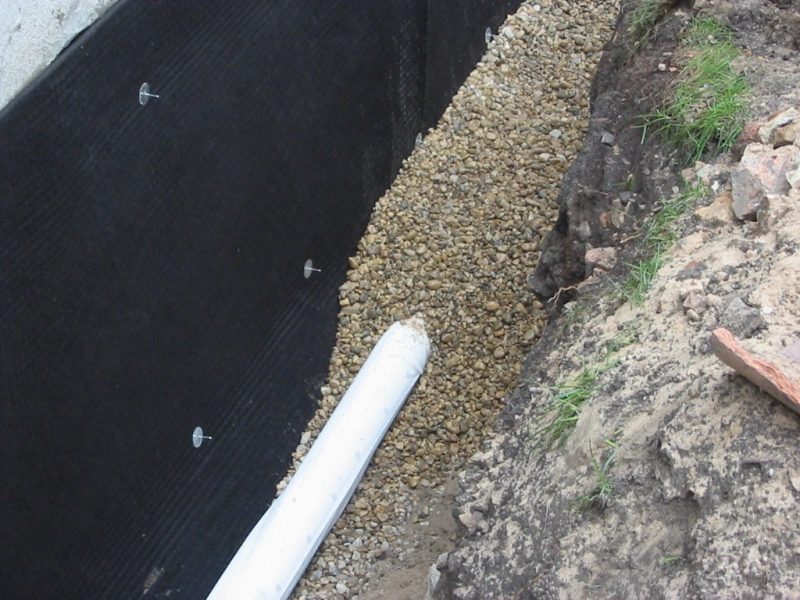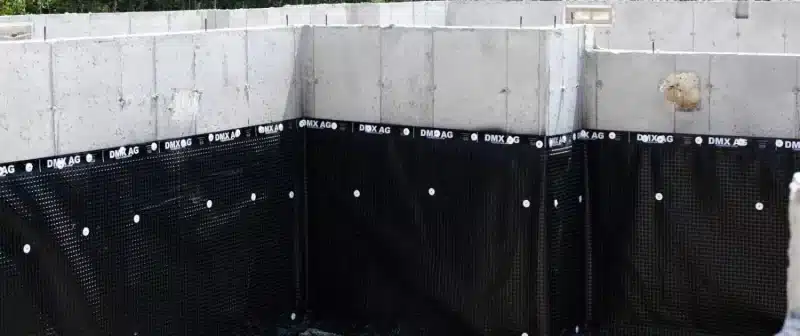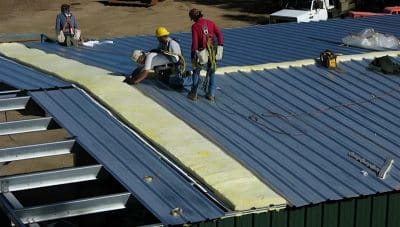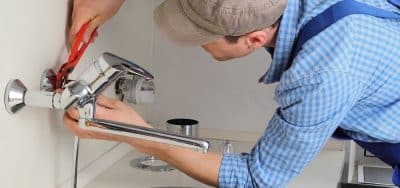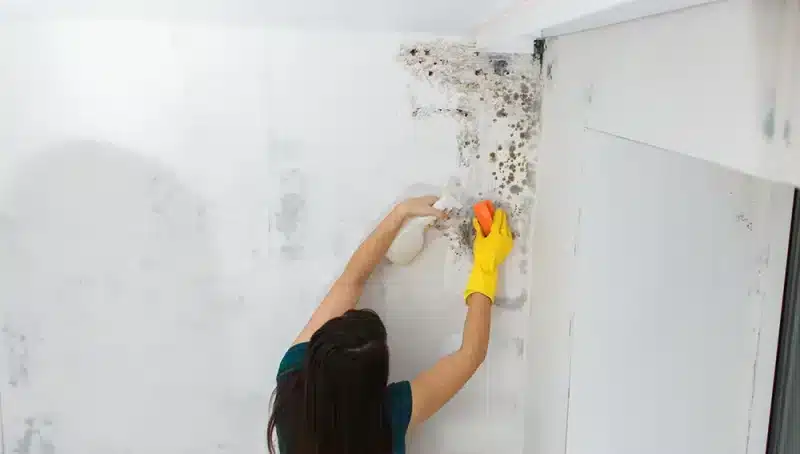
Basement water issues are a common problem for homeowners in Toronto. The region’s climate, soil conditions, and aging infrastructure make basements prone to water intrusion and flooding. This can lead to extensive damage if left untreated. Waterproofing is the most effective solution to keep basements dry and prevent future problems. This article will examine the causes of basement flooding, the consequences of water damage, waterproofing solutions, and how to choose the right contractor. Properly waterproofing your basement is one of the most important investments you can make as a Toronto homeowner.
Causes of Basement Water Problems
Toronto’s climate and geography make basement water issues very common for homeowners. There are three main causes of basement water problems:
- High water table – The water table refers to the groundwater level under the surface. Parts of Toronto have a high water table, meaning the groundwater level is near the basement floor, which increases the risk of water seepage through cracks. To mitigate this issue, homeowners often seek professional basement waterproofing services in Toronto to protect their foundations from water damage.
- Clay soil – Much of Toronto has clay soil, which needs to drain better. During heavy rains, water accumulates on the surface and saturates the soil. The dense clay prevents the water from percolating, causing it to pool against the foundation instead.
- Heavy rain – Toronto gets a fair amount of precipitation annually. Intense rainstorms can overwhelm sump pumps and drainage systems. Surface runoff also flows downhill and collects around homes at the bottom of slopes. Large volumes of rainwater splashing against foundation walls can seep into tiny cracks.
Consequences of Water Damage
Mold Growth
Mold spores are present in most environments and need moisture to grow. When water seeps into a basement, it provides the perfect conditions for mold to spread across walls, floors, and possessions. This black or green growth is not only an eyesore but also a significant health hazard. Mold releases spores and mycotoxins that can cause allergic reactions, respiratory issues, and headaches. Moreover, prolonged exposure can lead to more severe health complications, particularly for individuals with compromised immune systems. It is critical to prevent and remediate mold right away to maintain a healthy living environment.
Structural Damage
Excess moisture weakens building materials like concrete, wood, and drywall. Over time, water causes erosion, warping, cracks, and instability. This gradual foundation damage can escalate if ignored, eventually requiring major and costly repairs. Persistent water infiltration can undermine the structural integrity of the entire home, leading to potential safety hazards. Catching and fixing leaks early is the best way to avoid expensive structural issues and ensure the longevity of the building.
Health Risks
Damp basements create an environment where dust mites, bacteria, and fungi thrive, exacerbating allergies and asthma. The presence of standing water also increases the risk of falls and electric shocks, posing a direct threat to the safety of residents. Additionally, pests like termites and carpenter ants are attracted to moisture, leading to further structural damage and potential infestations. Addressing waterproofing issues promptly helps create a healthier home by eliminating these hazards, ensuring a safer and more comfortable living space.
Electrical System Damage
Water and electricity are a dangerous combination. When water infiltrates a basement, it can come into contact with electrical wiring, outlets, and appliances, leading to short circuits and potential electrical fires. Moisture can also corrode electrical components, causing malfunctions and increasing the risk of electric shocks. Regular inspections and immediate repairs are essential to prevent water-related electrical issues.
Damage to Personal Belongings
Basements are often used for storage, meaning water damage can lead to the loss of valuable personal belongings. Items like furniture, electronics, documents, and sentimental possessions can be irreparably damaged by water exposure. Implementing waterproof storage solutions and ensuring the basement remains dry can help protect these valuable items from damage.
Decreased Property Value
Unaddressed water damage and its associated problems can significantly decrease the value of a property. Potential buyers are likely to be deterred by signs of mold, structural damage, and moisture issues. Ensuring that the basement is dry and well-maintained is crucial for preserving property value and making the home attractive to future buyers.
Basement Waterproofing Solutions
There are several effective methods for waterproofing a basement to prevent water damage. The right solution depends on the water source and the problem’s severity.
Interior Drainage
Interior drainage systems are installed along the basement floor and walls. Perforated pipes are laid and covered with gravel, then connected to a sump pump. Water seeps into the pipes and is pumped out before penetrating the basement. Interior systems are less disruptive as they don’t require excavating outside.
Benefits of Interior Drainage:
- Cost-Effective: Generally less expensive than exterior solutions.
- Minimal Disruption: No need for extensive excavation, preserving landscaping.
- Effective Water Management: Redirects water away efficiently.
Exterior Drainage
Exterior waterproofing seals the outside foundation walls and footings. Drainage pipes are installed around the perimeter of the foundation. The pipes prevent groundwater from passing through cracks and drain into a sump pump system. Exterior drainage is more effective for serious leaks but requires digging around the foundation.
Benefits of Exterior Drainage:
- Comprehensive Protection: Prevents water from entering the foundation.
- Durable Solution: Offers long-term protection against water infiltration.
- Increases Property Value: Enhances the home’s structural integrity and appeal.
Sump Pumps
A sump pump is essential for any drainage system to work. The pump removes water from the drainage pipes and discharges it away from the home. Sump pumps should have backup power in case of electricity failure, and battery backup pumps are recommended.
Benefits of Sump Pumps:
- Reliable Water Removal: Keeps the basement dry by efficiently removing water.
- Backup Power Options: Ensures operation during power outages.
- Versatility: Can be integrated with various drainage systems.
Sealants
Sealants provide a waterproof barrier along cracks and joints in foundation walls and floors. Polyurethane injection sealants are pumped into cracks under pressure, and epoxy sealants are also effective. Sealants prevent water seepage and stop leaks at the source.
Benefits of Sealants:
- Quick and Easy Application: Can be applied without extensive preparation.
- Effective Leak Prevention: Seals cracks and joints effectively.
- Cost-Effective: An affordable solution for minor leaks and cracks.
Choosing the Right Contractor
When selecting a basement waterproofing contractor, it’s important to conduct thorough research and find a reputable company. Here are some key factors to consider:
Licenses
Verify that the contractor in your municipality is properly licensed for basement waterproofing. They should have up-to-date licenses required to operate and perform the work. This ensures they are legally allowed to provide services in your area. Proper licensing also indicates that the contractor adheres to industry standards and regulations, providing an added layer of trust and reliability.
Experience
Look for a contractor with many years of experience who specializes in basement waterproofing, such as Quality Age Build company. They should have extensive expertise in assessing basement water problems and implementing proven solutions. More experience means they’ve likely handled many basement waterproofing projects, allowing them to tackle complex issues with efficiency and skill. An experienced contractor is also more likely to stay updated on the latest techniques and technologies in the field.
Reviews
Check online reviews and testimonials for the contractor. Reputable basement waterproofing companies will have many positive reviews describing high-quality work and great service. Pay attention to how the company responds to any negative reviews as well. A contractor who addresses concerns professionally and promptly demonstrates a commitment to customer satisfaction and continuous improvement.
Warranties
Choose a contractor that provides strong warranties on their waterproofing solutions. Longer warranties often indicate greater confidence in their craftsmanship and products. Make sure you understand what is covered under the warranty to avoid surprises later. Comprehensive warranties can offer peace of mind, ensuring that any future issues related to the waterproofing work will be handled without additional costs.
Insurance
Ensure that the contractor has adequate insurance coverage, including liability insurance and workers’ compensation. This protects you from any potential legal and financial responsibilities in case of accidents or damages during the project. A well-insured contractor demonstrates professionalism and a commitment to safeguarding both their workers and clients.
Detailed Proposals
A reputable contractor should provide a detailed proposal outlining the scope of work, materials to be used, project timeline, and cost breakdown. This transparency helps you understand what to expect and allows for better comparison with other contractors. Avoid contractors who give vague estimates or pressure you into making quick decisions without clear information.
References
Ask the contractor for references from past clients. Speaking directly with previous customers can give you insight into their experiences and the quality of the contractor’s work. References can also help verify the contractor’s claims and provide additional assurance of their reliability.
Conclusion
Proper research will help you find the most qualified contractor for your basement waterproofing project. A reputable company with proper licensing, extensive experience, positive reviews, strong warranties, adequate insurance, and transparent proposals is best positioned to permanently solve your basement water problems. Taking the time to choose the right contractor ensures that your investment in basement waterproofing will result in a dry, safe, and structurally sound home.
